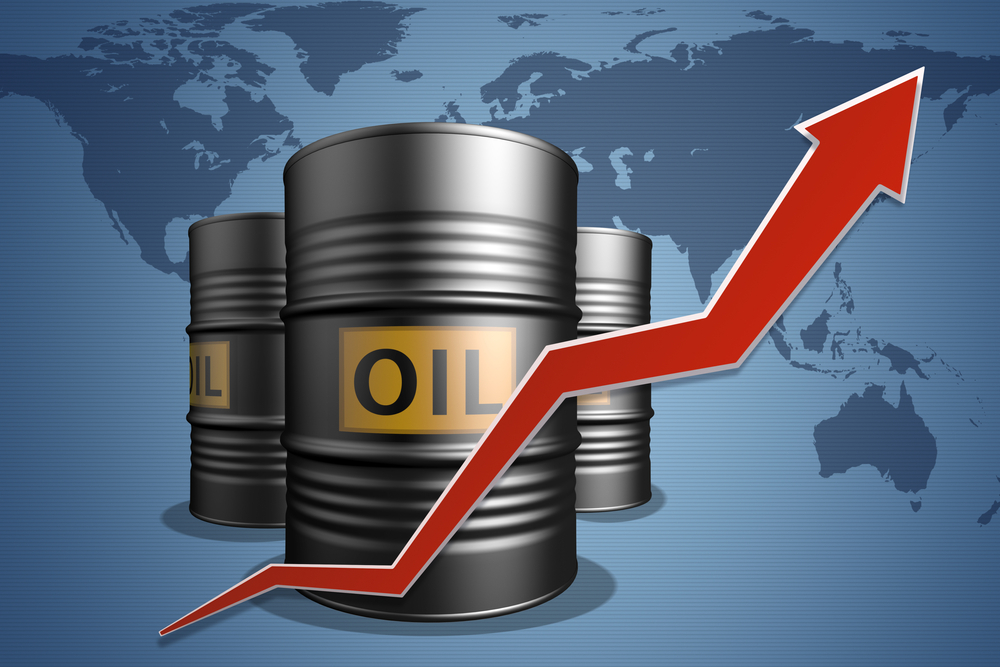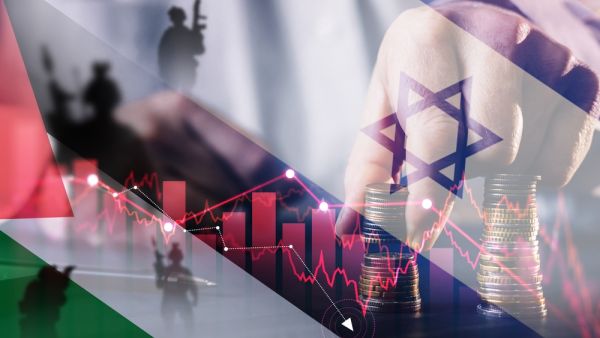ALBAWABA - Investors in global financial markets are closely monitoring the ramifications of the Israeli war on Gaza on three major fronts: rising energy prices, the return of global inflation, and a potential increase in central bank interest rates following a short hiatus. There are also concerns about the trajectory of the dollar and its impact on heavily indebted emerging economies.
In terms of energy, the Brookings Institution in Washington warns that rising energy prices could complicate the mission of central banks worldwide, which have been working to reduce inflation rates to their targeted levels since last year. The war in Ukraine raised energy and food prices in 2022, leading to higher inflation rates. The International Monetary Fund (IMF) estimates that any increase in oil prices could contribute to inflation, with a 10% increase potentially reducing global growth by 0.4%.
So far, oil prices have risen to $93 per barrel, and they are expected to continue rising above $100 if the war expands or if Iran becomes involved in the conflict. Since the start of "Operation Sword of Jerusalem" and Israel's harsh response to Gaza, the war has impacted global risk sentiment, leading to wider yield spreads on assets, particularly sovereign bonds, and a stronger US dollar.
The intensification of global financial conditions could have serious repercussions for economies already experiencing financial vulnerabilities and relying on energy and food imports. Many emerging markets and developing economies are already facing external debt service crises and a loss of investor confidence.
Emerging markets fear a stronger US dollar, especially those that have accumulated large debts in dollars during the zero-interest rate era. A stronger dollar means they will struggle to service their dollar-denominated debts and face crises in rising food and energy prices.
As a result, financial imbalances in many emerging economies, including non-oil Arab states, are expected to increase. According to IMF data, external debts in emerging markets have risen to $5.5 trillion in the current year, up from $4.9 trillion in 2018.
Since "Operation Sword of Jerusalem" and the beginning of Israel's severe military campaign in Gaza, the dollar has risen against most major currencies in exchange markets. According to Bloomberg data, the dollar has risen by 0.2% against the euro and the British pound, while other currencies like the Australian dollar, New Zealand dollar, and Norwegian krone have weakened, depreciating by over 5% due to rising oil prices.

(Shutterstock)
Analysts suggest that the Gaza conflict could contribute to further dollar strength, especially against the euro, which could fall back to parity, while the yen weakens to 150 yen per dollar.
In this context, Jason Wong, a currency strategist at BNZ Bank in Wellington, stated, "The path of least resistance in the very short term is for a stronger US dollar due to lower risk appetite."
The dollar has risen by 2.1% this year and is on track to achieve gains for the third consecutive year.
In the Arab world, stock markets have declined due to investors' concerns about the consequences of the war. However, if the war does not escalate and the military campaign against Gaza continues for an extended period, analysts believe that petroleum-exporting Arab economies will benefit in two ways: from higher oil prices and government revenues and from a stronger US dollar, especially since the imports of petroleum-exporting countries are mainly from Asian countries whose currencies have been depreciating against the dollar.
Among non-oil countries, several are expected to suffer from the conflict. Analysts say that Lebanon remains mired in a highly dangerous financial crisis, with a gross domestic product (GDP) that has fallen by over 50% since 2018. Jordan, on the other hand, has high external debts, with external obligations exceeding 110% of GDP. The war is expected to have a significant impact on domestic stability and tourism, which is a crucial source of foreign currency.
Egypt also heavily relies on tourism inflows for foreign currency revenues and is facing challenging prospects for the overall economy. It has substantial disparities in external debts and pressure on the pound's exchange rate.
Market reactions to the Gaza conflict have been exceedingly modest in global stock markets, but investor concerns remain about the undermining of confidence in global financial markets, particularly the possibility of rising oil prices and inflation, with associated consequences potentially leading to an economic downturn in the United States








